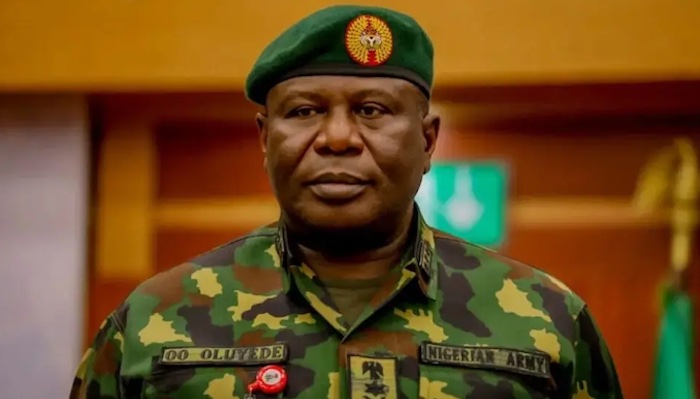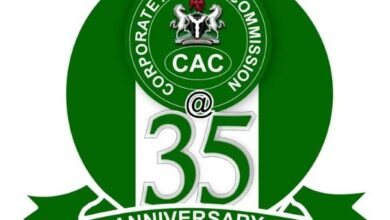Tinubu Reshuffles Nigeria’s Military Command to Reinforce National Security Architecture

In a decisive move signaling renewed commitment to security sector reform, President Bola Ahmed Tinubu has announced a sweeping overhaul of Nigeria’s defence leadership — a strategic recalibration aimed at strengthening the nation’s internal security architecture and sharpening operational effectiveness across the Armed Forces.
The shake-up, which takes immediate effect, marks one of the most significant military realignments since the beginning of Tinubu’s administration, reflecting his emphasis on professionalism, merit, and strategic renewal in the nation’s defence establishment.
A Strategic Reset in National Defence
According to a statement issued in Abuja by Sunday Dare, Special Adviser to the President on Media and Public Communication, the President approved the appointment of new service chiefs as part of a broader effort to enhance synergy, efficiency, and accountability within the armed forces.
The new appointments are as follows:
- General Olufemi Oluyede — Chief of Defence Staff (CDS)
- Major General Waidi Shaibu — Chief of Army Staff (COAS)
- Air Vice Marshal Sunday Kelvin Aneke — Chief of Air Staff (CAS)
- Rear Admiral Ibrahim Abbas — Chief of Naval Staff (CNS)
- Major General E.A.P. Undiendeye — Retains position as Chief of Defence Intelligence (CDI)
President Tinubu, in his directive, expressed profound appreciation to the outgoing service chiefs for their patriotism, sacrifice, and distinguished service, urging the new military leadership to “uphold professionalism, vigilance, and unity” while ensuring that every operation reflects the highest standard of discipline and national duty.
Why the Change Matters
This latest reshuffle, analysts say, is both a continuity of reform and a signal of recalibration. It underscores the administration’s determination to adapt to evolving threats — from insurgency and banditry to maritime insecurity and cyber defence — while injecting new energy and strategy into Nigeria’s military command structure.
As a senior defence source told BRANDECONOMY, “Tinubu’s appointments balance operational experience with strategic foresight — a mix designed to restore momentum in the fight against internal and external security challenges.”
Meet the New Military Chiefs
1️⃣ General Olufemi Oluyede — Chief of Defence Staff
General Oluyede, now Nigeria’s top-ranking military officer, steps into the position at a time when joint force coordination and inter-agency intelligence fusion are vital to national defence.
He is expected to strengthen the Joint Task Commands across the North-East, Middle Belt, and Niger Delta, ensuring improved collaboration among the Army, Navy, and Air Force in tackling asymmetric warfare.
His leadership will focus on aligning Nigeria’s Defence Headquarters (DHQ) with Tinubu’s vision for a more agile, technology-driven and intelligence-led military posture.
2️⃣ Major General Waidi Shaibu — Chief of Army Staff
A respected officer from the Armour Corps and a member of the 41st Regular Combatant Course, Major General Waidi Shaibu brings decades of operational experience and training excellence to his new role as Chief of Army Staff (COAS).
Career Highlights:
- Theatre Commander, Operation Hadin Kai (2024–2025): Led counter-insurgency campaigns in the North-East, improving troop morale and tactical discipline.
- Deputy Commandant & Director of Studies, National Defence College: Mentored senior officers on strategic leadership and counter-terrorism doctrines.
- GOC, 7 Division / Commander, Sector 1, Operation Hadin Kai (2022–2023): Pioneered restructuring in combat operations and troop rotation efficiency.
- Director of Training, Army Headquarters: Enhanced army-wide capacity-building initiatives.
Known for his reformist mindset, Shaibu is expected to focus on restructuring training, discipline, and combat-readiness, while consolidating gains made in asymmetric warfare. His leadership style emphasizes field accountability, tactical innovation, and troop welfare.
“His operational brilliance and emphasis on tactical readiness make him a soldier’s general,” said one senior officer who served under his command.
3️⃣ Air Vice Marshal Sunday Kelvin Aneke — Chief of Air Staff
Air Vice Marshal S.K. Aneke, born in 1972 in Makurdi and hailing from Udi, Enugu State, represents a new generation of Nigerian Air Force (NAF) leadership — technically sophisticated, globally trained, and strategically minded.
Profile Snapshot:
- Enlisted in Nigerian Defence Academy (NDA) in 1988; commissioned in 1993.
- Former Air Officer Commanding, Mobility Command, Yenagoa.
- Holds degrees in Physics, International Affairs, Political Economy, and Strategic Studies (from Ahmadu Bello University, University of Abuja, and U.S. Air War College).
With experience spanning combat mobility, air logistics, and operational planning, AVM Aneke is expected to prioritize airpower integration, drone surveillance capability, and modernisation of fleet maintenance.
His tenure comes at a time when Nigeria’s air assets are increasingly crucial to counter-insurgency and border defence, especially across the Lake Chad Basin and North-West corridors.
“We are entering an era where intelligence, precision, and mobility will define Nigeria’s air superiority,” BRANDECONOMY Defence analysts observed.
4️⃣ Rear Admiral Ibrahim Abbas — Chief of Naval Staff
Rear Admiral I. Abbas, the new Chief of Naval Staff (CNS), is a battle-tested officer whose experience in anti-bunkering and maritime security operations makes him well-suited for Nigeria’s strategic maritime defence objectives.
Key Assignments:
- Flag Officer Commanding (FOC), Central Naval Command.
- Commander, Task Group 22.2 — Operation DAKATAR DA BARAWO: Oversaw anti-oil theft and maritime crime suppression in the Niger Delta.
- Known for integrating tactical intelligence, coastal surveillance, and inter-agency cooperation to reduce illegal oil bunkering and piracy.
Abbas’ appointment signals Tinubu’s intention to restructure Nigeria’s blue-water strategy, deepen maritime domain awareness, and protect critical offshore infrastructure — a vital component of Nigeria’s oil and trade lifelines.
The Bigger Picture: A New Era of Security Leadership
Beyond the appointments, the reshuffle aligns with Tinubu’s Defence Modernisation Agenda, which seeks to:
- Strengthen joint command operations through intelligence fusion centres.
- Expand cyber-defence capabilities to counter new-age threats.
- Reorganize military procurement and logistics transparency.
- Enhance synergy with regional defence blocs such as ECOWAS and the Multinational Joint Task Force (MNJTF).
- Bolster civil-military relations and restore public trust in the Armed Forces.
According to BRANDECONOMY Defence analysis, this shake-up may also lay the groundwork for Nigeria’s evolving regional security doctrine, balancing domestic counter-terrorism with external peacekeeping influence across West Africa.
BRANDECONOMY INSIGHT: Strategic Continuity Meets Operational Reform
The appointments of Oluyede, Shaibu, Aneke, and Abbas represent a generational blend of combat experience, strategic foresight, and institutional discipline — a leadership recalibration designed to deliver measurable results across security theatres.
While operational challenges persist — including insurgency resurgence, banditry, piracy, and transnational arms trade — the new defence leadership is expected to emphasize joint intelligence, rapid response, and internal cohesion.
What remains critical is the political will to sustain reforms, ensure accountability in defence spending, and uphold welfare and morale among officers and troops.
If implemented with consistency, analysts believe this shift could mark the beginning of a new command culture within Nigeria’s Armed Forces — one defined not by hierarchy, but by results, transparency, and operational excellence.












